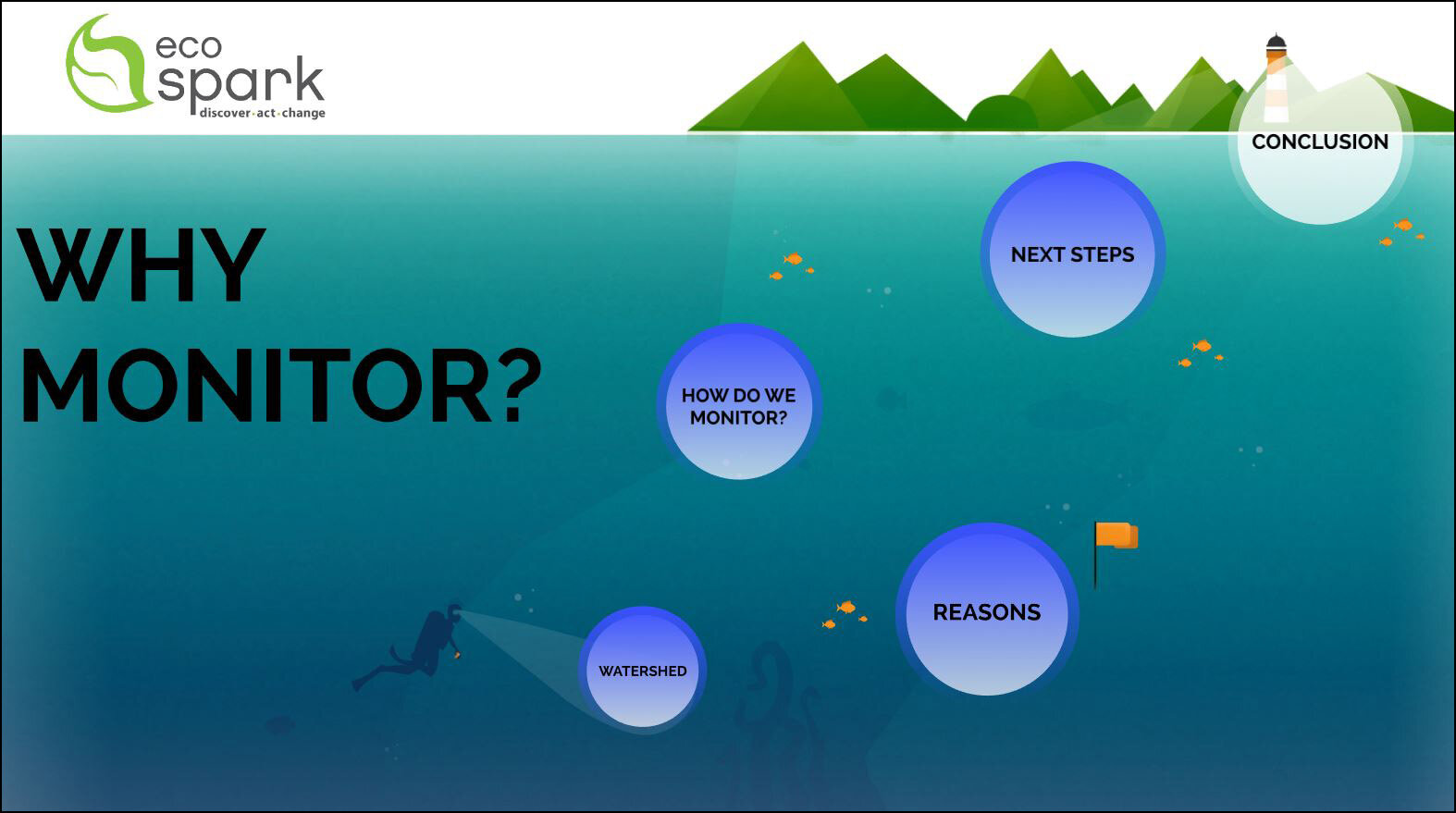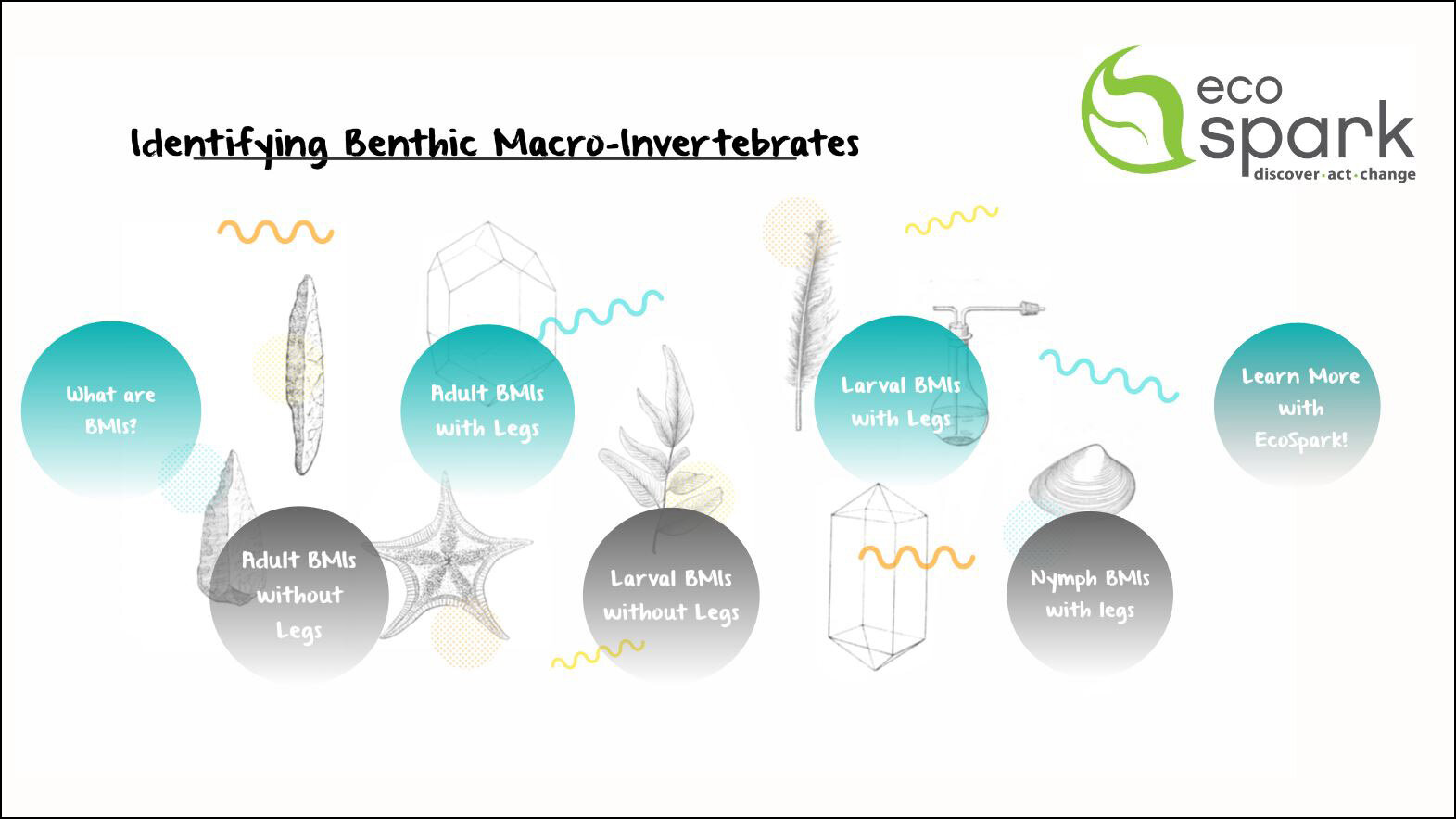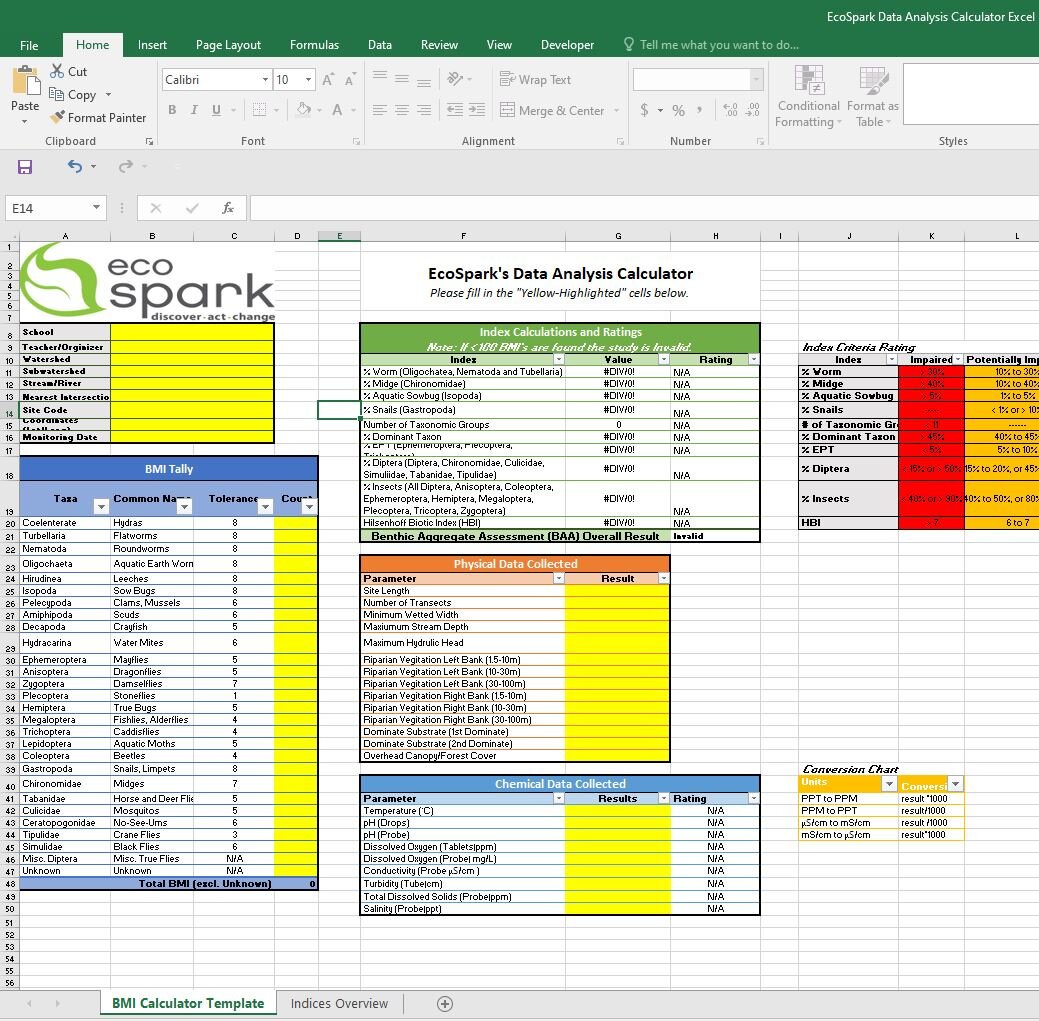Student Resources
EcoSpark provides high-quality curriculum connected materials to support our hands-on citizen science programming. Explore the resources below to enhance your learning experience. Suitable for grades 6-12.
CITIZEN SCIENCE Resources
Citizen Science Calendar
EcoSpark’s Citizen Science Calendar lays out the various citizen science programs that run throughout the year as well as those that run in certain seasons. Get involved in outdoor education and have a look at how your school can earn points towards an EcoSchool certification by participating in the programs.
Changing Currents Resources
Interested in learning about your local stream/river. Find out how EcoSpark and other organizations collect and assess various biological data, to investigate the health of watershed systems in your area!
Learn about watersheds and the importance of physical, chemical and biological monitoring as well as how-to monitor.
Identifying Benthic Macroinvertebrates
Learn in detail how to identify all 27 groups of benthic macroinvertebrates that are assessed for water-quality investigations.
Learn more about the bio-monitoring protocols involved in the Changing Currents program, with a step-by-step guide to field day activities and detailed information on how to fill out the data sheets.
When students return to the classroom with the data collected from their stream study, they’ll be ready and eager to do the final analysis. Was the stream healthy or impaired? Use the data analysis calculator to find out.
EcoSpark Data Analysis Calculator
Following the Changing Currents stream study, input the physical site data, chemical data and benthic data into EcoSpark’s Data Analysis Calculator to generate an assessment using two benthic macroinvertebrate indices to learn more about the health of the stream studied.
Classroom projects
Looking for a cool project idea for class? Check out the following resources:
Outdoor Learning in Winter: Giving our attention to the under-studied species near schools, especially in winter months when this data is scarce, is one of the best ways to help conservation research and gain STEM skills.
Diverting and Collecting Rainwater
Localized Stream Action: Build a rainwater catchment system for your school and decrease the amount of rain water run-off flowing into your city's sewer system.
Making Waves: Stream-friendly habits
Changing Habits: Challenge your classmates, family and friends to develop healthy-stream habits to protect local waterways.
Communicating Results to Government and Business: Craft compelling letters to send to government officials and businesses who can make positive changes and/or decisions to improve the health of your local stream.
Press Releases and Newspaper Articles
School & Community Education: Learn how to Inform your community about what you’ve learned about the health of local ecosystems.











